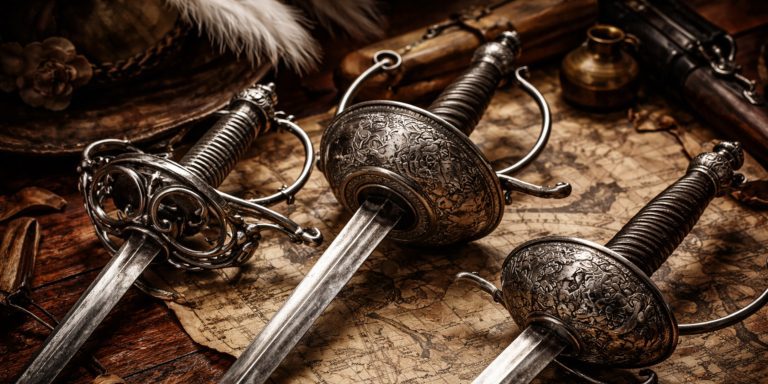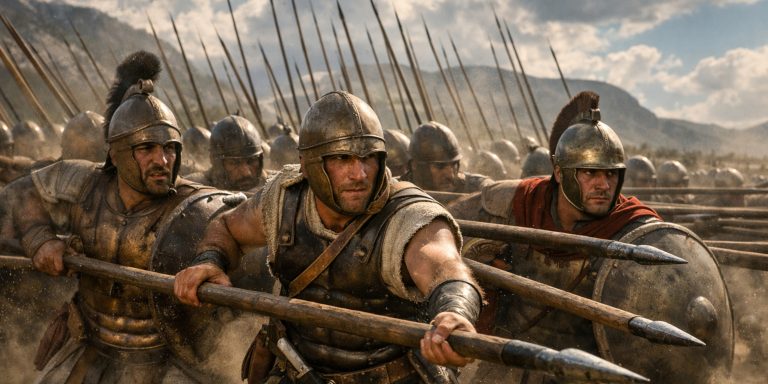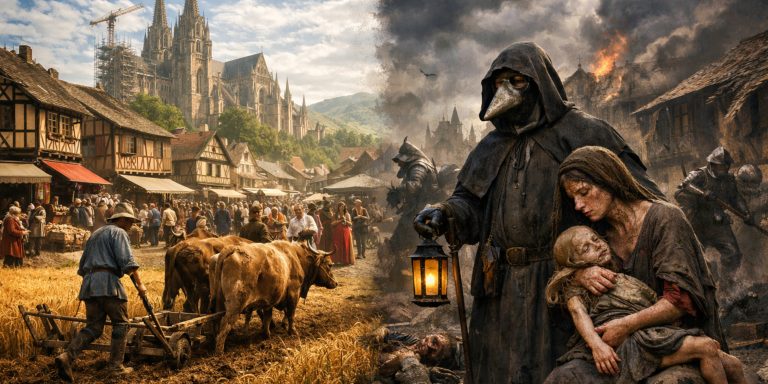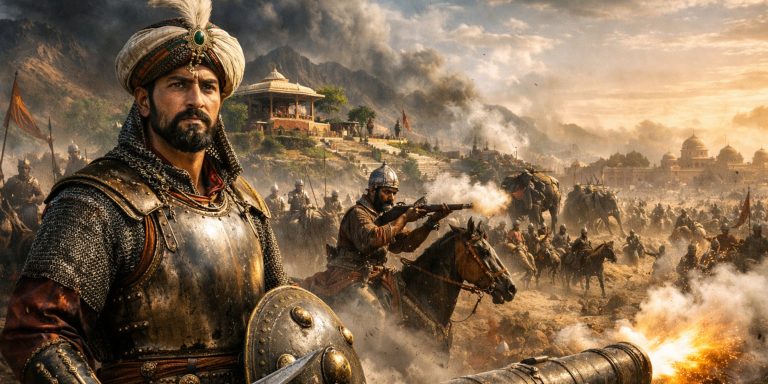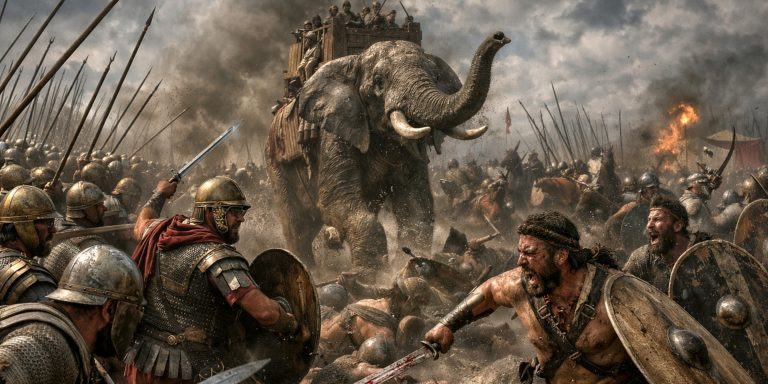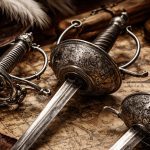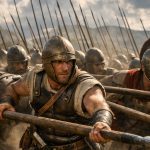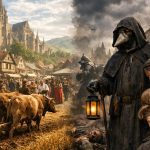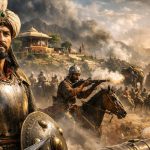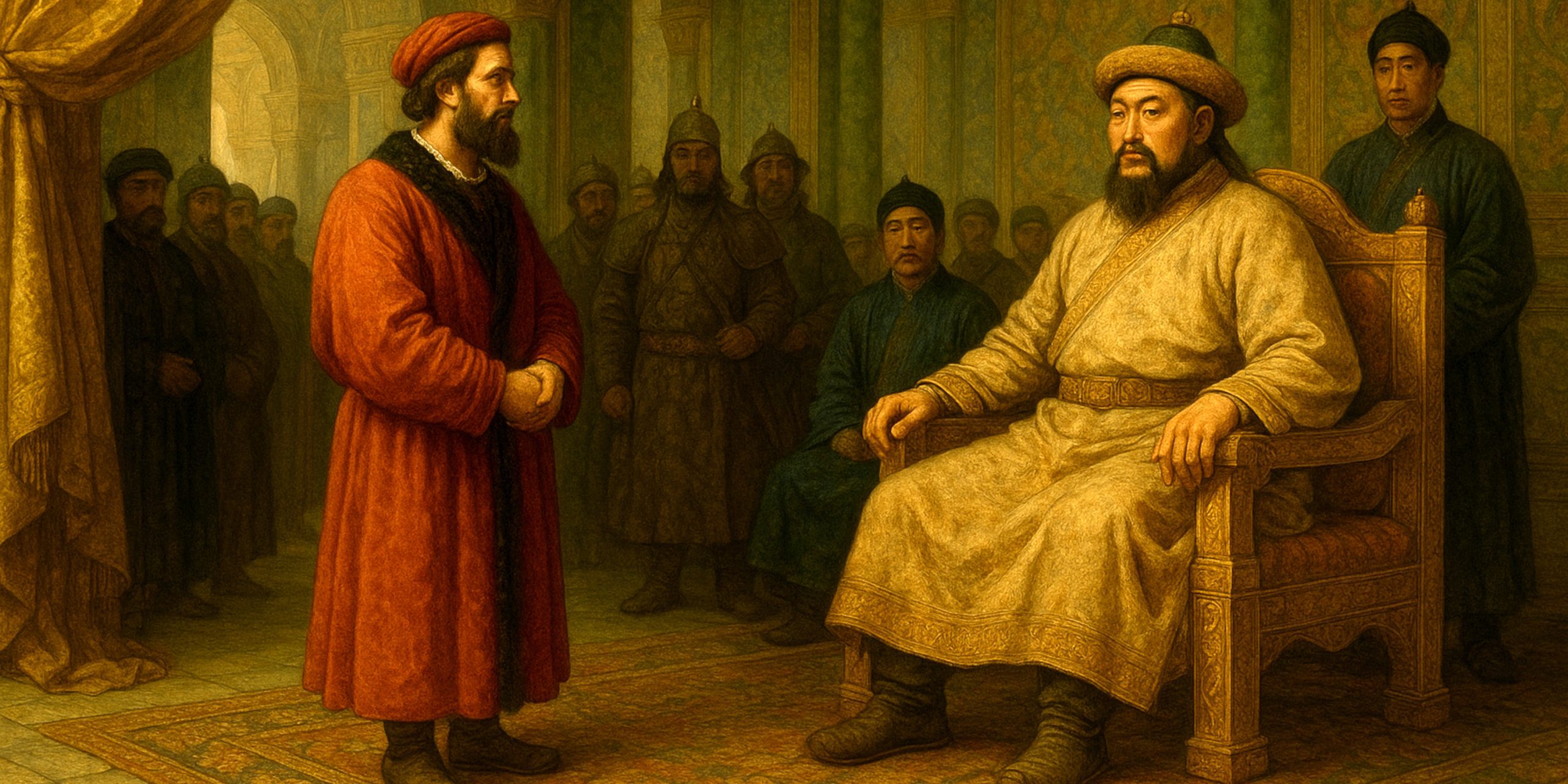
Marco Polo has been called many things over the centuries: explorer, merchant, storyteller, and sometimes, a liar. Born in Venice in 1254, he stepped into a world that was both expanding and stubbornly ignorant of its own borders. By the time he returned home, he had journeyed through lands most Europeans could barely imagine. The trouble was, many refused to believe a word of it.
In truth, Marco Polo was neither the grand hero of discovery some later claimed, nor the fraud his critics insisted upon. He was a sharp-eyed merchant caught between two worlds, one foot in medieval Venice and the other on the road to Xanadu.
Early Life in Venice
Marco was born into a family that already had trade in its veins. His father Niccolò and uncle Maffeo were merchants of some ambition, dealing across the Mediterranean and Black Sea long before Marco could walk. When they first ventured east and met Kublai Khan, Marco was still a boy. By the time they returned to Venice, he was seventeen and eager to join their next journey.
Venice itself was a fitting launchpad. A republic powered by commerce and cunning, it bred men who could calculate profits in their sleep and charm kings before breakfast. Marco fit the mould perfectly.
The Journey to the East
In 1271, the three Polos set out from Venice on what would become one of the longest recorded overland journeys of the Middle Ages. Their route cut through the Middle East, Persia, and the Pamir Mountains, before descending into the Mongol domains of China.
When they finally reached the court of Kublai Khan, Marco’s youth, education, and keen observation caught the emperor’s attention. According to The Travels of Marco Polo, he served the Khan for nearly two decades, travelling across China as an emissary. He claimed to have visited cities brimming with silk, paper money, and wonders like no European had seen before.
Sceptics might note the suspicious neatness of this tale, but one cannot deny that much of what he described later matched the records of Chinese and Persian sources. Whether Marco exaggerated or simply told the best version of the truth remains an open question.
Return to Venice and Imprisonment
The Polos eventually returned home in 1295, almost unrecognisable after twenty-four years abroad. Venice, ever pragmatic, welcomed them not with banners but with curiosity. Their wealth spoke louder than any story could.
That changed when Marco found himself captured during a naval war with Genoa. Imprisoned, he dictated his experiences to a fellow inmate, Rustichello da Pisa, a romance writer with a flair for embellishment. The result was Il Milione, or The Travels of Marco Polo, a blend of fact, fancy, and medieval marketing.
The Book That Redefined the World
Marco’s book was a sensation. It circulated widely, often copied and reinterpreted. For some, it was the first glimpse of Asia as a sophisticated, organised world rather than a vague land beyond the horizon. For others, it was a collection of fables.
Yet its influence was undeniable. Christopher Columbus carried a copy with him on his voyages. Cartographers used it to sketch lands they had never seen. And European curiosity about the East, once faint and fearful, grew into the great Age of Exploration.
That said, Marco’s credibility never escaped scrutiny. His omission of certain Chinese customs and landmarks puzzled historians. Some even argued he never made it to China at all. The truth, like the man, remains somewhere between commerce and curiosity.
Character and Reputation
Marco Polo was not a knight, a conqueror, or a saint. He was a merchant who observed and remembered, which in some ways was more dangerous. He wrote as someone fascinated by systems, wealth, and people, not just wonders. His eye for detail made him a credible witness to a world few Europeans had encountered.
At the same time, he was a product of his age: impressed by gold, hierarchy, and spectacle. His tone could be admiring, patronising, or bemused, depending on whether silk or tax systems were involved.
Legacy
Marco Polo died in Venice in 1324, reportedly insisting on his deathbed that he had told only half of what he had seen. Whether that was pride or truth is up for debate.
His travels inspired centuries of exploration, shaped Europe’s geography, and added to the mythology of East-West encounters. He bridged continents with words, not armies, which might be why he still intrigues historians more than he inspires statues.
In an age of men who conquered, he simply looked, listened, and wrote it down. For that, the world remembers him.
The Seven Swords Takeaway
The story of Marco Polo is as much about perception as it is about exploration. He revealed a world larger than anyone in Venice could imagine, but he also showed how fragile truth becomes when filtered through ambition, translation, and time.
Whether one views him as a visionary or a Venetian salesman with a flair for fiction, Marco Polo remains the man who taught Europe to look east—and to keep questioning what it sees.
Watch the documentary:

